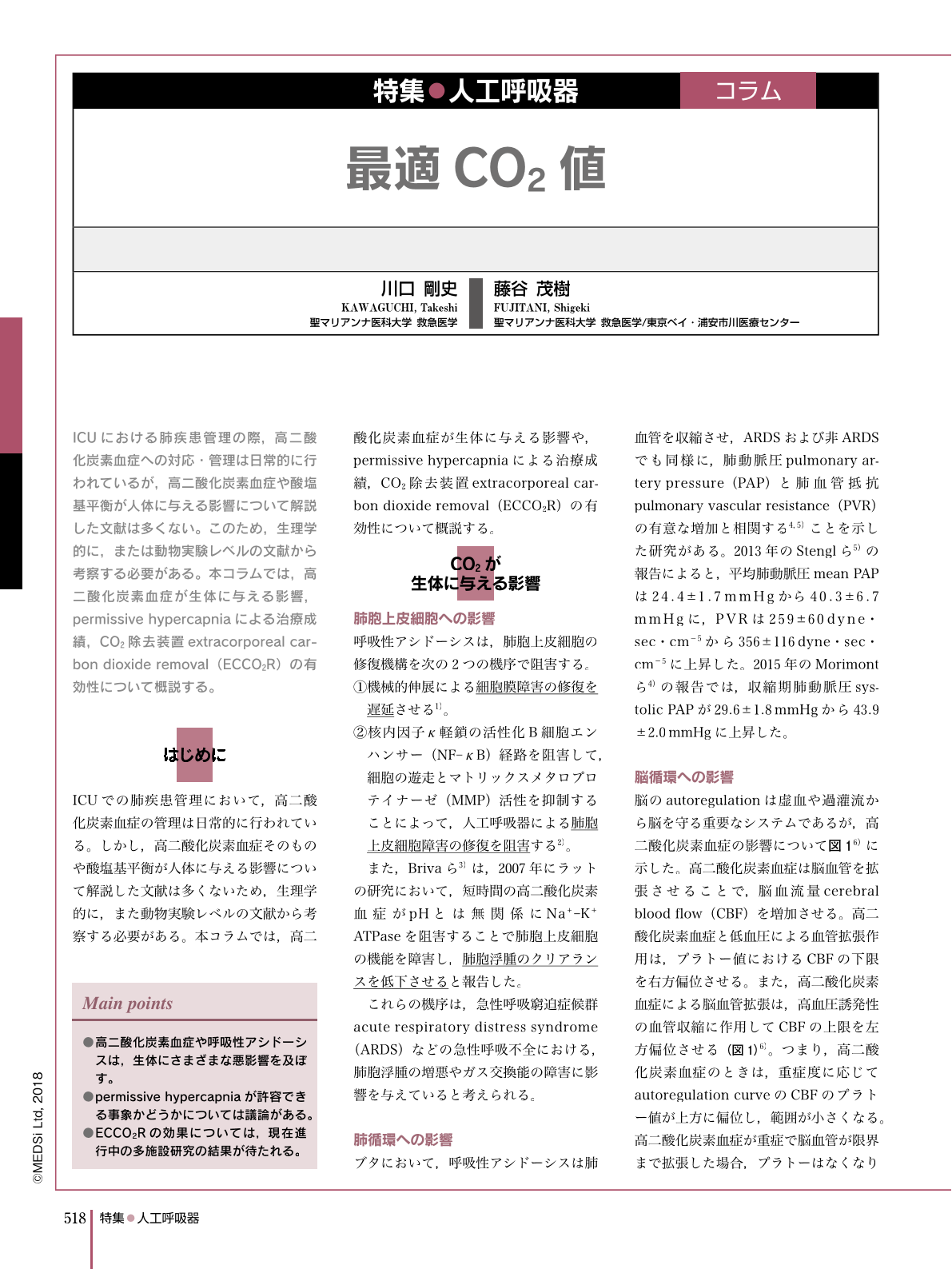Japanese
English
- 有料閲覧
- Abstract 文献概要
- 1ページ目 Look Inside
- 参考文献 Reference
ICUにおける肺疾患管理の際,高二酸化炭素血症への対応・管理は日常的に行われているが,高二酸化炭素血症や酸塩基平衡が人体に与える影響について解説した文献は多くない。このため,生理学的に,または動物実験レベルの文献から考察する必要がある。本コラムでは,高二酸化炭素血症が生体に与える影響,permissive hypercapniaによる治療成績,CO2除去装置extracorporeal carbon dioxide removal(ECCO2R)の有効性について概説する。
Main points
●高二酸化炭素血症や呼吸性アシドーシスは,生体にさまざまな悪影響を及ぼす。
●permissive hypercapniaが許容できる事象かどうかについては議論がある。
●ECCO2Rの効果については,現在進行中の多施設研究の結果が待たれる。
Management of hypercapnia is often challenging in patients with pulmonary diseases in the intensive care unit (ICU), but existing literature does not fully explain the effects of hypercapnia and acid-base equilibrium on patient outcomes. Therefore, physiological principles and animal data may need to be evaluated to determine optimal management. In this column, we outline the physiological effects of hypercapnia on the human body, treatment results using permissive hypercapnia, and the effectiveness of extracorporeal carbon dioxide removal (ECCO2R) devices. There is still no consensus on optimal CO2 levels in patients with critical lung illness. While hypercapnia itself may have deleterious effects on the human body, CO2 levels with an acceptable acid-base equilibrium may be acceptable target levels. Permissive hypercapnia using a ventilatory strategy with low tidal volume and low plateau pressure is and will be widely adopted for these patients for the time being. A new treatment strategy may be developed in the future when the results of multicenter studies are available.

Copyright © 2018, MEDICAL SCIENCES INTERNATIONAL, LTD. All rights reserved.


